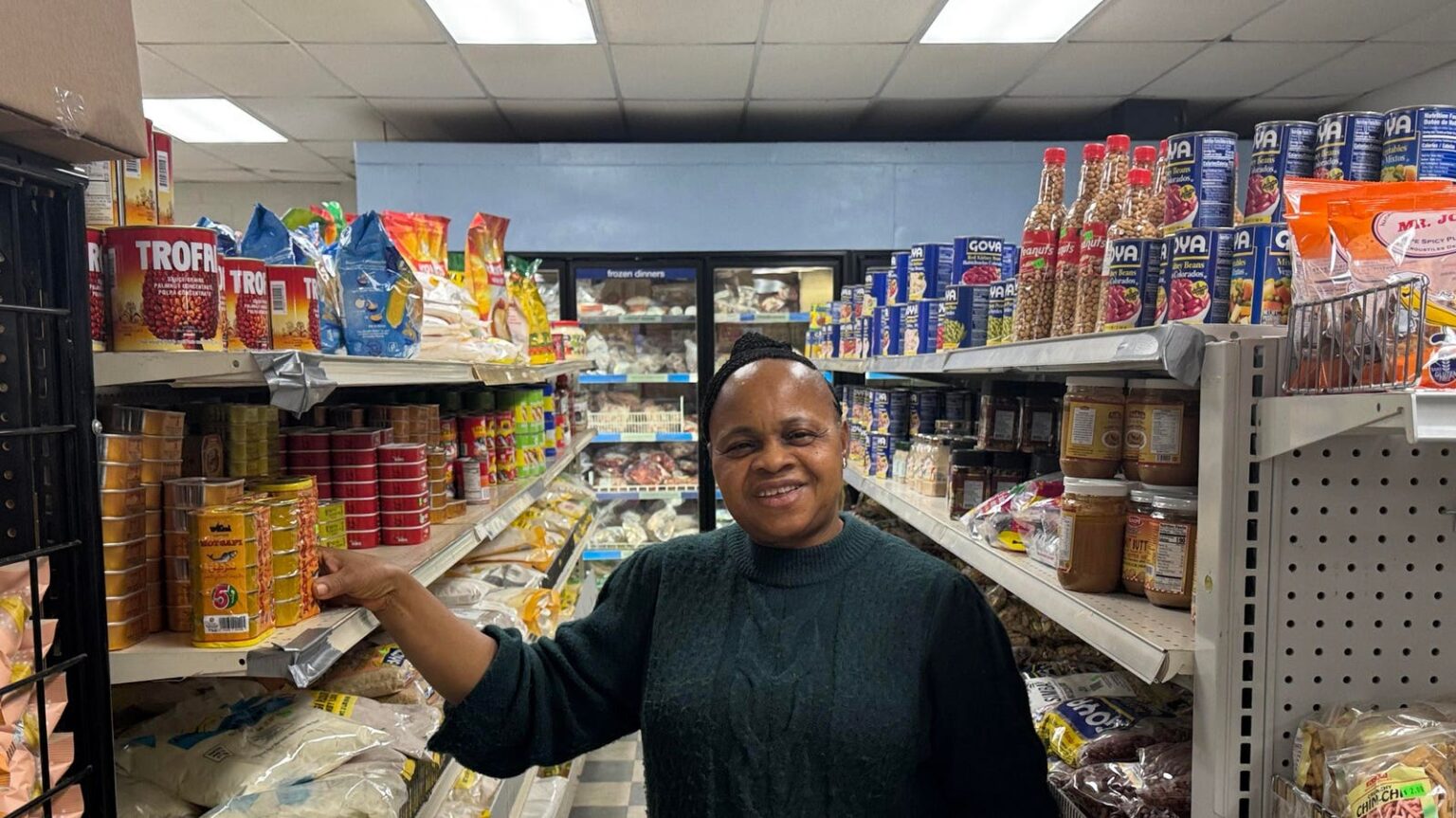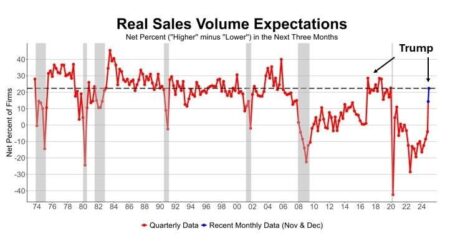In a modest storefront called Martha’s International Market, Inc. on 28th Street in Grand Rapids, Michigan, Martha and John PeeWee have created a home away from home for African and Caribbean immigrants looking for a taste of home. However, for store owners, commercial success and the American dream are things in which they relentlessly invested.
In September 1997, amid Liberia’s civil war turmoil, Martha and her husband, John, and their three children sought refuge in the United States. Liberia, a West African nation bordered by Sierra Leone, Guinea and Côte d’Ivoire, was ravaged by a conflict that displaced many families. The First Liberian Civil War, which began in 1989, resulted in over 200,000 deaths and forced approximately one million people into neighboring countries as refugees. Upon their arrival in the U.S., the family expanded with the birth of their fourth child, a son.
“It really affected me, but it also made me stronger and realize that when bad times come, you have to be able to withstand the pressure and fight for yourself,” Martha said. “The rebels were killing for nothing, and we didn’t know if our lives would end at any moment. It was a bad time.”
Martha, originally from Gbarnga, the capital city of Bong County in Liberia, which lies northeast of Monrovia, initially found life in the U.S. a challenge. She found a job as a nursing aide in a local nursing home and worked there for 10 years before getting an injury.
“I used to like my job until I hurt my back. That was a turning point for me. When I hurt my back, I knew that job was no longer for me,” Martha said. “I remember that I started with only $200. I had worked overtime at the nursing home and had the extra money, so I used it to buy 10 boxes of tilapia fish from Canada when we visited my husband’s family there, and the rest is history.”
Their store, which began with just $200 in 2009 after the couple lost their house to the 2008 financial crisis, has since grown into an establishment that does much more than sell cassava leaves and garden eggs. However, the journey toward building a successful business as African immigrants was challenging. John recalls the early struggles vividly, describing how they juggled factory jobs and sold spices from their home.
“At first, we didn’t know what else to do,” John said. “Back home, we ran restaurants, but when we first moved here, we worked factory jobs and couldn’t get ahead. Martha started selling spices and fish from the house. It was small, but we put everything into it. No loans—just hard work.”
Martha spent her time selling the fish to her friends by carrying the items in the trunk of her car and driving to African braiding salons in the Grand Rapids area to sell her items. She also sold items from the basement of her house when she started and her closest friends were her original customers. She began selling potato leaves, habanero peppers and palm oil before expanding.
“When I started selling chicken, I had to move and find a store to sell it because, at that point, my electricity bill was going up way too high,” Martha explained.
When she finally found her store, Martha refused to take out a loan because she feared she would be liable for the extra costs if the store did not succeed.
“I was afraid of it failing, and I also didn’t know it would take this much,” Martha reported. “If I knew it would take this long, we would never have started.”
Self-funding for Black entrepreneurs is not unheard of. According to a 2023 report by the Federal Reserve Banks, which analyzed data from the 2022 Small Business Credit Survey (SBCS), startups owned by people of color, including Black entrepreneurs, are more likely to depend on personal funds or support from friends and family for business financing. This reliance is partly due to these entrepreneurs’ challenges in securing external funding.
Additional data from the Federal Reserve Banks’ 2022 SBCS shows that 50% of Black businesses are denied by banks when they apply for loans, lines of credit, or merchant cash advances. This challenge reflects systemic barriers, such as a lack of access to traditional financing avenues, disproportionately impacting Black entrepreneurs.
For the PeeWee’s self-funding, the $200 they got from their paycheck eventually paid off. Today, their store carries a wide selection of African foods from across the continent—yams from Ghana and Nigeria, cassava leaves, fufu flour and spices that take their customers back to familiar kitchens and celebrations. The majority of the store’s freezers are stocked with perishable foods, such as habanero peppers from Nigeria packaged in one-quart Ziploc freezer bags and sold for $5 per pack, as well as meats and vegetables shipped transatlantically from various regions across the African diaspora.
Over the years, Martha’s International Market has sold more foods directly sourced from local African farmers and vendors strategically located across Africa. Some of these vendors found Martha online and reached out to partner with her, and with the rise of globalization, the PeeWee’s have seen an uptick in these collaborations. However, according to the PeeWee’s, one major challenge of sourcing products is the lengthy shipping times, with shipments often taking three to four months to arrive from overseas. For example, local yams from Ghana or Nigeria could pose a particular challenge. Regardless, the store has become a cultural hub for Midwestern immigrants.
For many of their customers, the PeeWees’ store has become a community hub and a home away from home. “We eat what we sell,” John says. We know our customers’ names, and Martha and I have built relationships with so many people, so for us, this is not just business—it’s family.”
This personal touch has made the store a haven of connection for African immigrants navigating life in the Midwest.
Martha’s International Market has now acquired a reputation as the best location to source African imported groceries in Grand Rapids, a burgeoning West Michigan suburb with a diverse demographic.
The global demand for African cuisine has surged in recent years, thanks to cultural exchange, increased travel, Afrobeats and a growing appreciation for diverse culinary experiences. According to a report by Research and Markets, the global ethnic food market is projected to grow at a compound annual growth rate (CAGR) of 10.3% between 2021 and 2026, with African and Caribbean foods playing a significant role in this expansion.
In the U.S., platforms like Yelp and Google Trends show a sharp increase in searches for African dishes such as jollof rice, egusi soup and injera. Data from Yelp suggests that searches for “African restaurants” increased by over 125% between 2020 and 2023. Similarly, the popularity of African food festivals and pop-ups has grown, showcasing the rich flavors and diversity of the cuisine.
This growing interest is also evident in the retail sector. According to SPINS, a data company tracking trends in natural and organic products, sales of African food products like fonio, plantain chips and fufu flour increased by nearly 35% from 2021 to 2023 in the U.S. grocery market.
For businesses like Martha’s International Market, this trend has brought new customers eager to explore the flavors of Africa. “We’ve noticed more people coming in, not just from the African diaspora but also others curious about our foods,” John said. “They’re asking about things like how to cook cassava leaves or what spices to use for jollof rice.”
For the PeeWee’s relationship-building is still an important foundation for their success.
“At the end of the day, this is a family thing,” Martha said. “Customers often come here to reconnect with those they have not seen in a long time, so it is a community. It’s a place where people come to shop and meet when they haven’t seen each other for a long time. I’m so glad this has become a hub for Africans to connect.”
Read the full article here











